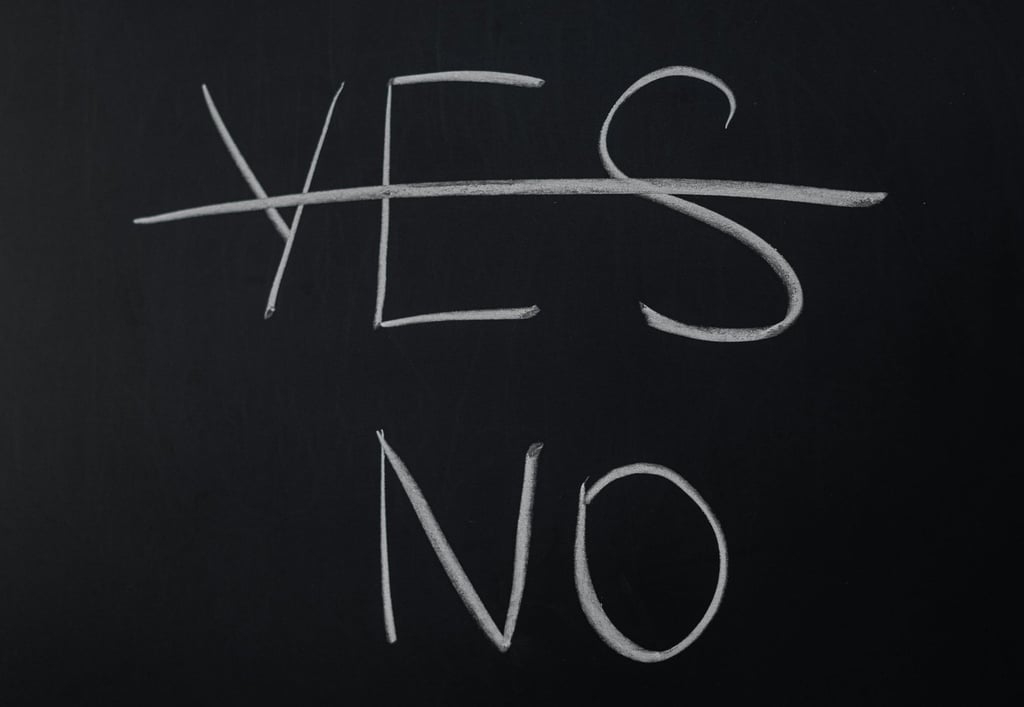The Power of Saying No: Setting Boundaries for a Peaceful Life
In today’s fast-paced world, many of us are caught in a cycle of saying “yes” far too often. Yes to extra work, yes to social plans we don’t enjoy, yes to favors that leave us exhausted. While it may seem like we’re being helpful, constantly agreeing to everything can drain our energy, create stress, and leave us with little time for the things that truly matter. The truth is, saying “no” isn’t a sign of selfishness—it’s a sign of self-respect. It’s about protecting your mental, emotional, and physical well-being while making space for what genuinely adds value to your life.
ENJOY LIFE
8/12/20252 min read


Why Saying No is Essential
Boundaries are like invisible fences that protect your personal space. Without them, it’s easy to feel overwhelmed, resentful, and disconnected from yourself. When you learn to say no:
You prioritize your own needs instead of constantly putting others first.
You create space for activities that bring you joy and meaning.
You prevent burnout by managing your energy wisely.
Think of it this way—your time and energy are like a battery. If you give all your charge away without recharging, you’ll end up drained and unable to function well for yourself or others.
Common Reasons We Struggle to Say No
Fear of Disappointing Others – You don’t want to upset or let anyone down.
Guilt – You feel selfish for putting yourself first.
Habit – You’ve always been the person who says yes, so it feels uncomfortable to change.
FOMO (Fear of Missing Out) – You’re worried you’ll miss an opportunity or be left out.
Recognizing these patterns is the first step to breaking them.
How to Say No Without Feeling Guilty
Be Clear and Direct
A simple, polite “I appreciate you thinking of me, but I can’t take this on right now” is all you need. Over-explaining often invites pressure to change your mind.Delay Your Response
If you feel caught off guard, say, “Let me think about it and get back to you.” This gives you time to assess whether it aligns with your priorities.Offer an Alternative
If you genuinely want to help but can’t commit fully, suggest another way: “I can’t attend the whole event, but I can stop by for an hour.”Practice in Low-Stakes Situations
Start saying no to small requests so you can build confidence for bigger ones.
The Ripple Effect of Setting Boundaries
When you start saying no more often, something powerful happens—you begin to feel lighter, more peaceful, and more in control of your life. You’ll have:
More time for what matters most—family, hobbies, rest.
Better relationships built on mutual respect.
Greater energy because you’re not constantly stretched too thin.
Increased self-confidence from knowing and honoring your limits.
And perhaps most importantly, you’ll stop living reactively and start living intentionally.
Final Thought
Saying no isn’t about closing yourself off from the world—it’s about choosing the right doors to walk through. Every time you say no to something that drains you, you say yes to something that nourishes you. Boundaries aren’t walls; they’re gateways to a calmer, happier, and more authentic life.
Photo by Polina Tankilevitch: https://www.pexels.com/photo/hand-of-a-woman-showing-palm-with-a-word-no-4830656/
Photo by cottonbro studio: https://www.pexels.com/photo/text-on-chalkboard-3825295/
Relaxation
Embrace simplicity and wellness in daily life.
Mindfulness
Comfort
© 2025. All rights reserved.
Marascomfylife@gmail.com
